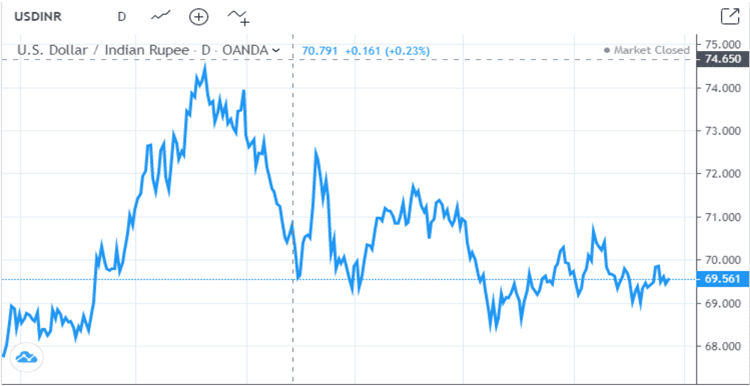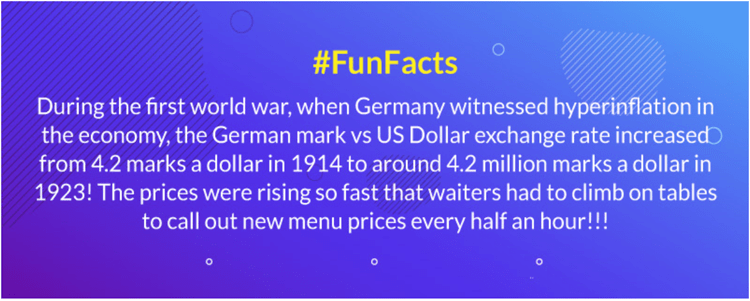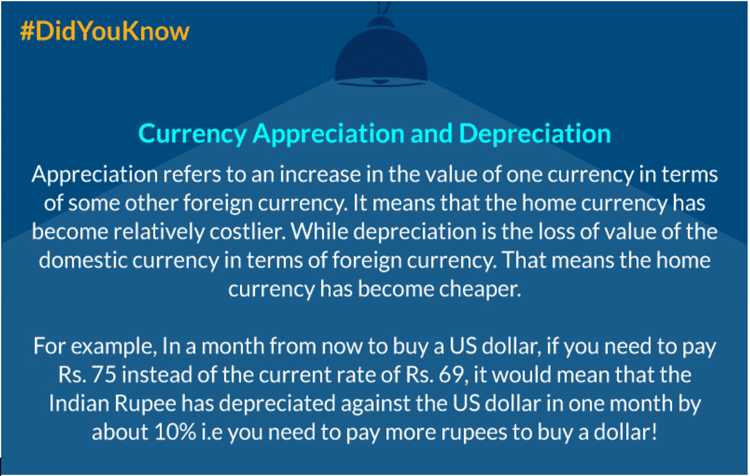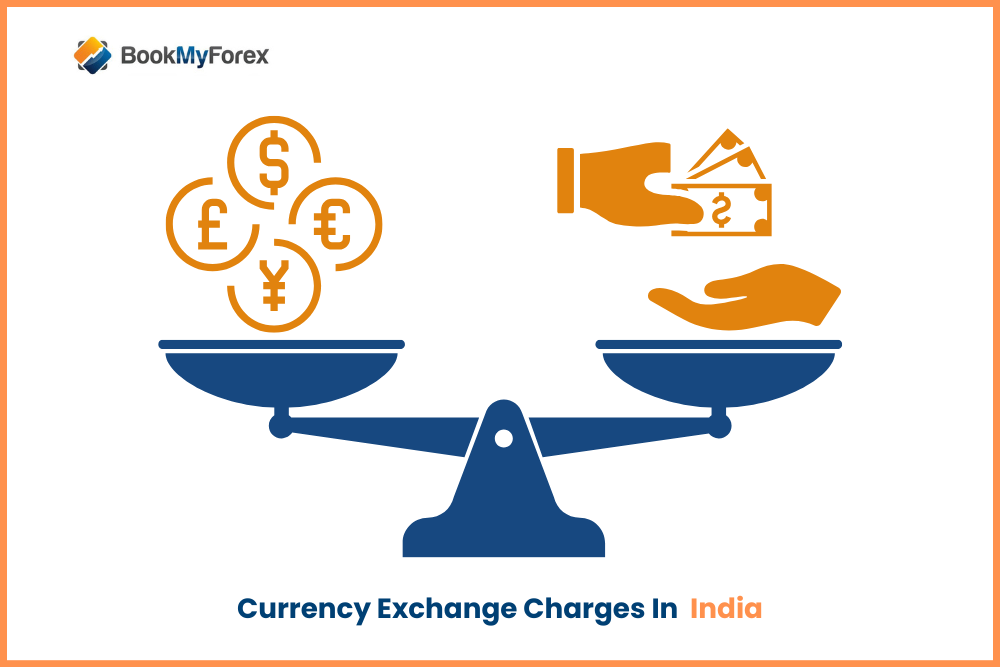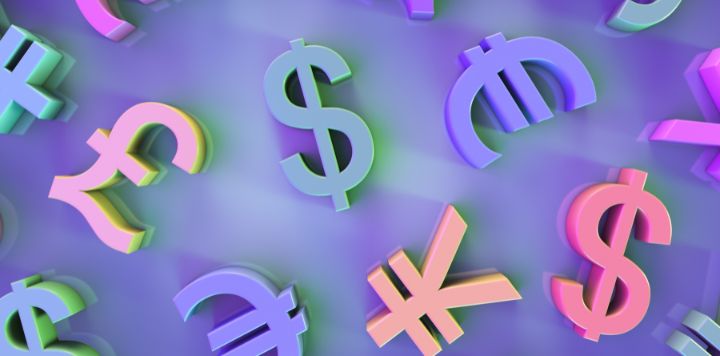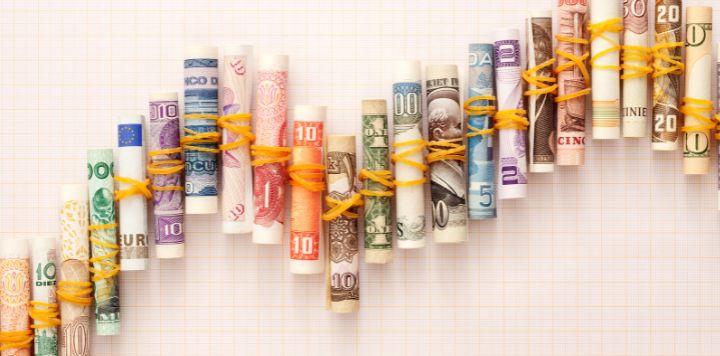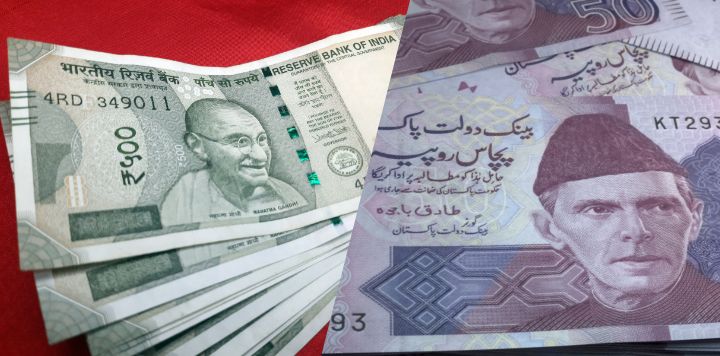Exchange rates basically represent the value of one currency in terms of some other currency. Currency exchange rates also represent the relative economic strength of a country in the international markets. The graph shown below records the movement of US Dollar vs Indian Rupee in the past year. As the graph shows, the Indian rupee has moved in quite a wide range against the US dollar in the last year. Have you ever wondered what makes foreign exchange rates move against each other?
In simple economic terms, the exchange rate simply works on demand and supply mechanism. If the demand for a currency is higher than its supply, the currency will become costlier and vice versa. However, there are various economic and political factors that affect the demand and supply mechanism of the currency.
Here are the top 5 factors that can influence the foreign exchange rate:
1. Inflation Differential:
Inflation rates of respective countries exert a strong influence on the exchange rate. Generally, countries with high growth and low inflation rates record appreciation in the value of its currency whereas a country with higher inflation typically experiences depreciation of its currency.
Also, the differential inflation rate of the countries also affects the exchange rate. Higher relative inflation of a country would mean lower purchasing power of the currency, which in turn would translate into the weakening of that country’s currency.
2. Relative Interest Rate:
Interest rates of a country is in a way acts as an indicator of the return on the capital. A higher inflation-adjusted interest rate in a country attracts foreign capital, which in turn strengthens the domestic currency and causes the exchange rate to appreciate. Similarly, lower net interest rates can cause foreign capital flight and therefore, depreciation of the currency. This way, relative interest rate affects foreign exchange rates.
Also Read: Click Here to Know Live Currency Exchange Rates
3. Current Account & Terms of Trade:
Current account records the trade transaction of a country with all of its trading partners including trade in both goods and services. If a country imports more than its exports, the current account will show in deficit which means the demand for foreign currency is more than its supply and that causes the domestic currency to depreciate.
Similarly, terms of trade is a ratio of an index of a country’s export prices to an index of its import prices. Favorable terms of trade mean the export price realization is higher than the import price. Increasing terms of trade shows greater demand for the exports of a country and which is positive for the home currency. Rising terms of trade mean appreciating effect on the exchange rate.
4. Public Debt:
Public debt is also one of the macro factors which can influence the foreign exchange market. Public debt constitutes government borrowings for financing public sector projects. Since such borrowings are government-guaranteed, a default on such loans would mean a breakdown of investor’s confidence in the country’s economy. So an unsustainable public debt would mean net foreign capital outflow and thereby, depreciation of the home currency.
5. Political Stability:
Apart from economic factors, political stability is another factor which affects the exchange rate. Foreign investors prefer a stable political regime and therefore, a stable and progressive government builds investor’s confidence. Consequently, the inflow of foreign capital causes the domestic currency to appreciate.
Apart from these, other factors such as geopolitical situation, world trade growth, corporate earnings, general economic and business environment also can affect foreign exchange rates.
Conclusively it can be said that while high-interest rate, high growth, and good corporate earnings have an appreciating effect on the currency, high inflation rate, political instability, unsustainable government borrowings, high current account deficit, and tensed geopolitical situation can be the factors causing depreciation of the home currency.




